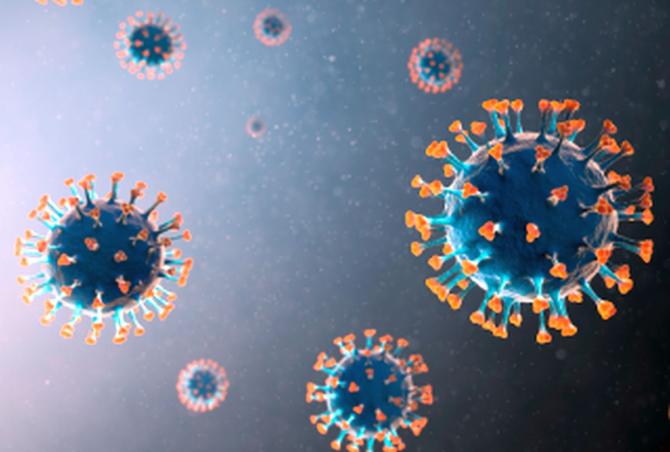People infected with SARS-CoV-2, the virus that causes COVID-19, have an increased risk of developing serious blood clots for up to six months after the infection, even in mild cases, according to a study published in The BMJ.

The researchers found an increased risk of deep vein thrombosis -- a blood clot in the leg -- up to three months after COVID-19 infection, pulmonary embolism -- a blood clot in the lung -- up to six months, and a bleeding event up to two months.
They also show a higher risk of events in patients with underlying conditions, patients with more severe COVID-19, and during the first pandemic wave compared with the second and third waves.
The researchers from Umea University in Sweden noted that these results support measures to prevent thrombotic events, especially for high risk patients, and strengthen the importance of vaccination against COVID-19.
Using national registries in Sweden, they identified more than one million people with confirmed SARSCoV-2 infection between February 1, 2020 and May 25, 2021, matched by age, sex, and county of residence to more than four million people who had not had a positive SARS-CoV-2 test result.
The researchers first calculated the rates of deep vein thrombosis, pulmonary embolism, and bleeding in COVID-19 individuals during a control period -- before and long after COVID-19 diagnosis -- and compared it to the rates in different time intervals after COVID-19 diagnosis.
They then calculated the rates of deep vein thrombosis, pulmonary embolism, and bleeding 1-30 days after COVID-19 diagnosis in the COVID-19 group and compared them to the corresponding rates in the control group.
The results show that compared with the control period, risks were significantly increased 90 days after COVID-19 for deep vein thrombosis, 180 days for pulmonary embolism, and 60 days for bleeding.
After taking account of a range of potentially influential factors, the researchers found a five-fold increase in risk of deep vein thrombosis, a 33-fold increase in risk of pulmonary embolism, and an almost twofold increase in risk of bleeding in the 30 days after infection.
This means that a first deep vein thrombosis occurred in 401 patients with COVID-19 and 267 control patients, the researchers said.
A first pulmonary embolism event occurred in 1,761 patients with COVID-19 and 171 control patients, and a first bleeding event occurred in 1,002 patients with covid-19 and 1,292 control patients, they said.
The researchers found that the risks were highest in patients with more severe COVID-19 and during the first pandemic wave compared with the second and third waves, which they said could be explained by improvements in treatment and vaccine coverage in older patients after the first wave.
Even among mild, non-hospitalised COVID-19 patients, the researchers found increased risks of deep vein thrombosis and pulmonary embolism.
No increased risk of bleeding was found in mild cases, but a noticeable increase was observed in more severe cases.
This is an observational study, so the researchers cannot establish cause, and they acknowledge several limitations which might have affected their findings.
For example, they said VTE may have been underdiagnosed in patients with COVID-19, testing for the disease was limited, especially during the first pandemic wave, and information on vaccination was not available.











 © 2025
© 2025